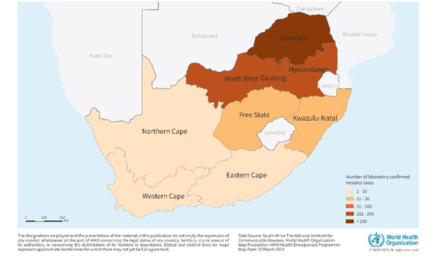In a groundbreaking revelation, a team of Chinese scientists has unveiled a crucial link between sea surface temperature anomalies in the tropical Indian Ocean and the magnitude of global dengue epidemics. Their findings, published in the prestigious journal Science, could revolutionize the way the world anticipates and responds to these deadly outbreaks, reported Xinhua news agency.
Dengue fever, a mosquito-borne disease caused by the flavivirus, affects millions worldwide annually. The interplay between climate factors, particularly phenomena like El Niño, has long been understood to impact the spread of dengue by influencing mosquito populations.
Harnessing sophisticated climate-driven mechanistic models and comprehensive dengue case data from 46 countries across Southeast Asia and the Americas, researchers from Beijing Normal University scrutinized the intricate relationship between global climate patterns and the seasonal and interannual severity of dengue epidemics in both the Northern and Southern Hemispheres.
Their findings are nothing short of revelatory: the team uncovered a remarkable predictive power in their model. It can forecast dengue outbreaks with an impressive lead time of up to nine months, a quantum leap from previous models that offered warnings a mere three months in advance.
Tian Huaiyu, corresponding author of the paper and a prominent figure at Beijing Normal University, emphasized the potential of these findings for enhancing outbreak response planning. “The ability to anticipate dengue outbreaks nearly a year in advance could revolutionize our preparedness efforts,” remarked Tian. However, he cautioned that further evaluations are necessary to ascertain the model’s predictive accuracy in real-world scenarios.
The implications of this study are profound. By leveraging climate indicators such as sea surface temperature anomalies in the tropical Indian Ocean, public health authorities could be empowered to implement proactive measures, potentially saving countless lives and mitigating the socio-economic burden associated with dengue outbreaks.
As the world grapples with the dual challenges of climate change and infectious diseases, this research stands as a beacon of hope, offering a glimpse into a future where science enables us to stay one step ahead of the next epidemic.












